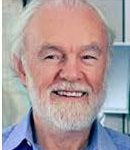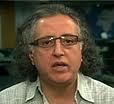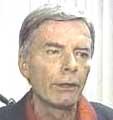Capitalism 3-Pack
3 CDs
Includes:
The End of Capitalism
In its long history, Capitalism has undergone many booms and busts. It is, simply put, an economic system in which a relatively large group of people, workers, sell their labor and production to a small group of people, the owners, for a wage. It generates a lot of money for the few and some for others down the economic scale. Since the crash of 2008 and the bank bailout, the share of income and wealth flowing to the top 1 percent has accelerated. In fact, the top 1 percent took more than 90 percent of all new income.
A New Social Contract
After 40 years the economic doctrine of neoliberalism has reached a dead end. But not for everyone. The 500 richest people in the world, all of whom are billionaires, gained a combined $1.2 trillion in wealth in 2019. Advocates of neoliberalism preach a kind of economic fundamentalism, i.e., markets rule, tax cuts for the rich, deregulation, privatization and austerity. As Ganesh Sitaraman in The Nation magazine reports, "Neoliberal policies created gaping inequality, unleashing the economically powerful to reshape politics, markets, and society to serve their own interests. Neoliberalism’s radical individualism sapped society of community and solidarity, leaving people lonely and isolated, ultimately pushing us to retreat into tribal identities. We can now see,” Sitaraman concludes, “that its results were disastrous.” What needs to happen? It's time for a new social contract.
How Capitalism Works
The latest phase of Capitalism, neoliberalism, has left a train wreck in its wake. It’s produced a new Gilded Age. The gap between theoretical Capitalism and its actual workings is jaw dropping. The chasm is a far cry from the courses in economics taught in colleges and universities. We are told the system relies on the market. In fact, it depends heavily on government intervention. When the big capitalists are in trouble states are there to bail them out. Really existing Capitalism works for the few at the expense of the many. Look at the Trump tax cut. Epic levels of inequality are not just in the U.S. but are worldwide. An Oxfam report says, 82% of the wealth generated in 2017 went to the richest 1%, while 3.7 billion people, the poorest half of the world, saw no increase in their wealth.
Speakers

David Harvey
David Harvey is the Distinguished Professor of Anthropology and Geography at the Graduate Center of the City University of New York. He is the author of many books, including The Limits to Capital, A Brief History of Neoliberalism, Spaces of Global Capitalism, A Companion to Marx’s Capital, Seventeen Contradictions and the End of Capitalism and The Ways of the World. He is among the top twenty most cited authors in the humanities and is the world’s most cited academic geographer.

Joseph Stiglitz
Joseph Stiglitz, a professor at Columbia University, is the recipient of the Nobel Prize in Economics. He was chair of the Council on Economic Advisors under Clinton. He also served as senior vice president and chief economist of the World Bank. His efforts to move the bank in a more progressive direction got him fired. He is the author of Globalization and Its Discontents, The Price of Inequality and People, Power, and Profits.

Yanis Varoufakis
Yanis Varoufakis is a member of the Greek parliament. He served as finance minister of Greece in 2015. He is the founder of MeRA25, a progressive Greek political party. He is the author of many books including Adults in the Room and Another Now.







Reviews
There are no reviews yet.